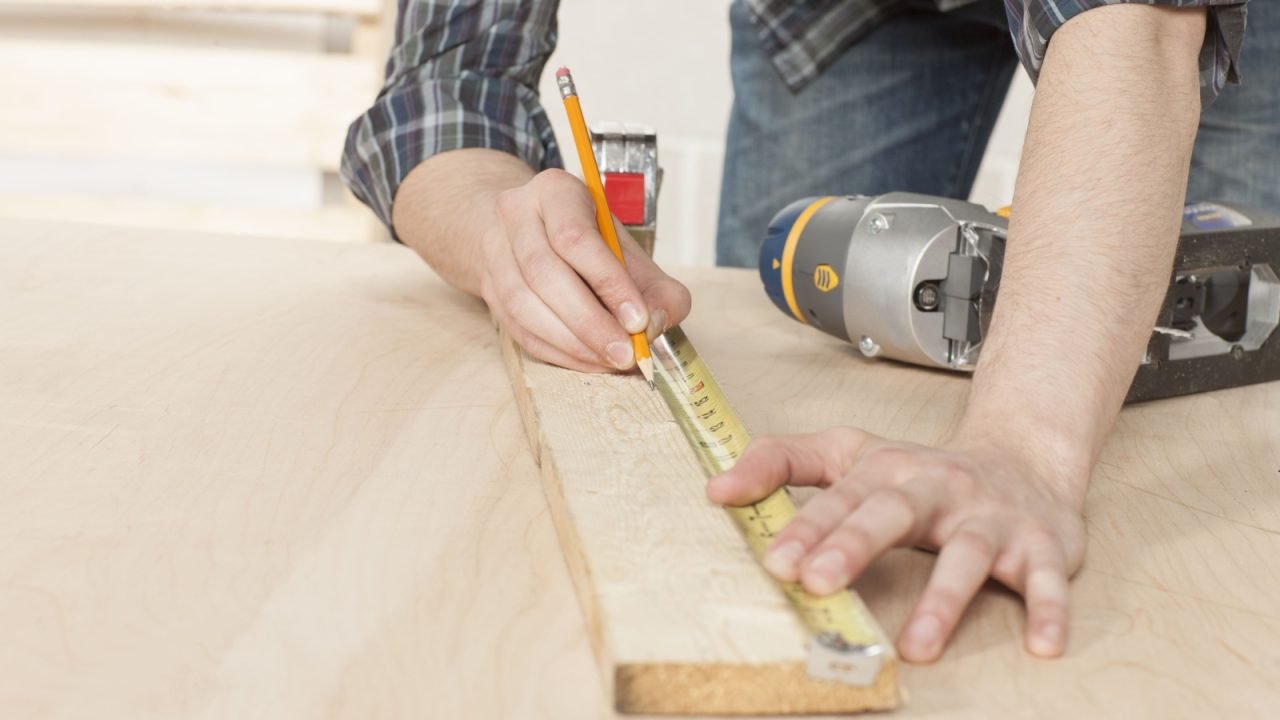ABC Contractor of the Year ACI Mechanical Puts People First
If there were an award for the cleanest fabrication shop in the country, ACI Mechanical, Inc., Ames, Iowa, would be a top contender. But lucky for its executive team, this full-service mechanical contractor earned an even more prestigious honor: Associated Builders and Contractors’ (ABC) 2017 Contractor of the Year, which is presented to a company that stands above the rest for its corporate integrity and commitment to safety, professional development and expert craftsmanship.
“I was actually speechless when I learned that we were selected to be the winner,” says Michael McCoy, president, who has worked for the company for 42 years. “For me, it’s a recognition of everything that we do to give back to our industry, and it’s a recognition of our overall involvement at ABC both locally and nationally. We’re blessed to have people on our staff who enjoy teaching and giving back. It’s a really outstanding honor.”
Shon Smith, prefabrication manager, wasn’t quite as surprised—he knows his team deserves it. “There’s so much talent in this company, and everyone is so dedicated to moving forward with the progress of technology. And then you take the dedication our people have for merit shop education and ABC, and that’s a formula for success.”
ACI Mechanical was a founding member of ABC’s Iowa Chapter in 1974, and since then, the company has been heavily invested in helping establish the ABC of Iowa Apprenticeship and Training Trust, providing instruction in plumbing, HVAC and sheet metal to countless graduates for the past 30 years, founding the chapter’s Emerging Leaders program, and advocating for policy change through ABC’s Free Enterprise Alliance and the Iowa Opportunity Alliance.
McCoy, currently the chapter’s treasurer, has served as a chapter chair, chapter board member, chair of the training trust and chair of the chapter development committee. On the ABC National level, he has served on the Board of Trustees and is a past chair and current member of the National Chapter Development Committee. Not shy of politics, he has proudly represented the interests of his employees and the needs of his industry at the Iowa Statehouse and attended political events in Washington, D.C., to defend and support open shop construction.
“ABC, as a volunteer-driven organization, is all about what you put into it. The more you put into it, the more you’re going to get out of it,” McCoy says. This merit shop attitude permeates the entire organization.
Smith won a gold medal in the 2008 National Craft Championships (NCC) in the sheet metal category, was named ABC’s first Young Professional of the Year in 2015, and he will chair the NCC Committee in 2019.
Kent Meyn, director of project management, who has worked for the company for 34 years, has served as chapter chairman, and currently serves on the ABC National Membership Committee and the Board of Directors.
Chris Kayser, production and training manager, has taught at the chapter for more than 35 years.
The Making of a Medalist
The company has come a long way since it was founded in 1945 as an appliance repair shop in Marshalltown, Iowa. In 1957, the company, then known as Air Conditioning Incorporated, became the first Lennox dealer in Central Iowa and remains a service alliance partner. For the next 25 years, it focused primarily on residential construction, service calls and preventative maintenance in a growing college town. In 1982, it began to blossom into a full-service mechanical contractor and grew its plumbing and piping group, while traveling to entirely new regions as a contractor for the U.S. Army Corps of Engineers.
“This company has always been really good at determining where the market is going, where to be and when to get in, and when to get out when the work tapers off,” says McCoy, who began his career as a service tech with the company, moved into project management and sales, and became company president in 2003.
In the 1990s, ACI Mechanical sold its residential operations and became a corporate subcontractor for Hardees Restaurants, installing mechanical systems at locations throughout the country. During this era, the company grew into the biodiesel market and became an early adopter of prefabrication technologies.
Also during this time, the company began to set itself apart by having a dedicated in-house engineering team, which is currently lead by Greg Braga, who has been with the company for 25 years. McCoy’s son Mike McCoy Jr. followed in his father’s footsteps, joining the company 19 years ago as a college student and today serving as a mechanical engineer and BIM manager.
In 1998, ACI Mechanical became part of the Comfort Systems USA family of companies with the goal of expanding its national footprint while re-establishing itself in the local HVAC market—a direct response to clients’ feedback that they desired a service offering. Today, ACI Mechanical focuses on larger heavy commercial and industrial construction projects, while the Comfort Systems USA Midwest branch focuses on HVAC service, building automation and small mechanical construction projects.
The company works from coast to coast and border to border, with significantly sized projects in Florida, California, Texas, North Dakota and Pennsylvania.
In the early 2000s, the company grew in the food manufacturing market—especially for pet food, with clients including Purina and Merrick Pet Care.
In addition, in a college town, it faces no shortage of student housing and multifamily projects to keep everyone busy.
ACI Mechanical thrives on repeat business. While it may gain two or three new clients each year through the competitive bid and spec market, 80 percent of its work comes from existing relationships.
“We were very unique in the fact that the economic downturn never impacted us at all,” McCoy says. “We actually grew through the entire recession. We had no layoffs. It speaks volumes about our clients and their desire that we remain successful. I treat our clients the way you would treat at an old friend; we’re driven by their success. We are highly focused on taking care of those who take care of us.”
Clients not only appreciate the company’s flexibility when it comes to traveling to distant jobsites, but also its level of attention to detail—especially when it comes to deadlines, safety and craftsmanship.
“We don’t miss a deadline,” Meyn says. “In the industrial sector, if a client has a sale of a product that they are manufacturing, whether it’s glass or batteries or pet food, they are counting on us to make our completion date. We do what it takes to get it done on schedule.”
Meyn also prides himself on the fact that clients can trust ACI Mechanical’s design, engineering and project management talents. “Face-to-face interactions with clients create buy-in, a professional bond and mutual respect,” he says. “While our industrial agriculture clients cut back significantly during the downturn, we continued to serve them on even the smallest projects.”
Platinum-level Safety Commitment
ACI Mechanical takes safety to the next level through its commitment to ABC’s Safety Training and Evaluation Process (STEP), a report card that the company uses not only to evaluate and score each of its jobsites, but also to influence the company’s entire safety strategy. Currently, it holds a prestigious STEP Platinum status, and the executive team is striving to achieve the very highest STEP Diamond level in the years ahead.
Especially in the industrial sector, many clients won’t work with a company if it has an experience modification rate above 1.0. ACI has kept its experience modification rate under 0.62 for more than five years.
New employees are indoctrinated in the company’s safety culture from day one. Every single employee is authorized to stop work if any worker—on their own jobsite or a general contractor’s jobsite—is performing work unsafely or without personal protection equipment. If a potential new hire isn’t comfortable with the level of safety training required to work at the company, he or she is no longer in the running for a job, says Laura Sundine, human resources coordinator.
All employees are trained on the 5×5 philosophy, which asks that before performing any task, workers take five steps back and five seconds to think about the task they are about to perform, determine the safest manner in which to complete it, and make sure the equipment needed to execute the task is operating in a safe manner.
“From 5×5, toolbox talks, regular safety meetings and safety training, we do everything we can to make sure our employees go home safely at the end of the day,” Sundine says.
About 15 years ago, ACI Mechanical saw a lot of small incidents—mostly cuts and scrapes—adding up, and it became a wakeup call. The company recommitted to safety training, including implementing a 100 percent gloves-required rule. Its incident rate dropped quickly, and it even went down to zero in a few standout years. Its fabrication shop is always clean, with tools or equipment precisely organized and labeled.
To incentivize employees, a “safety bucks” program rewards the whole team if ACI Mechanical falls within Comfort Systems’ top 10 safest companies. This year, they hit lucky No. 7. In addition, if an employee works accident free for a certain period of time, he or she can turn in safety bucks in exchange for extra vacation days.
“The most important thing that we do every day is have our employees go home safe. I never want to make a phone call telling a spouse that their husband or wife is in the hospital, or worse,” McCoy says.
Technology and Prefab Champions
ACI Mechanical has always been ahead of the curve on technology. Now, as BIM becomes mainstream, clients are driving its adoption on jobsites because they recognize the value and efficiencies it creates.
“One thing we’ve learned is that workers are all about information. They want the whole story upfront—they want all the facts and all the information they can possibly get before they start the task,” McCoy says. To achieve this, ACI Mechanical brings sturdy BIM boxes, which contain a computer monitor and printer, right to the jobsite. Workers also carry tablets that synch up to the BIM models in Autodesk Navisworks and Revit.
“We were one of the earlier ones to adopt this technology, and now people are catching up to us,” Meyn says.
From an industrial plant owner’s perspective, the technology provides information on demand. Drawings, specification sheets and maintenance manuals for individual valves and air handlers are embedded directly into the model, allowing a client to click on a particular item to gain all of the information needed after project delivery. From the mechanical contractor’s perspective, the 3D model can generate spool drawings that demonstrate to field workers exactly how much time it may take to finish, fabricate and install each piece.
Field leaders also are starting to play around with virtual reality goggles that allow them to “enter” a space see what it’s supposed to look like at various stages of the project. In addition, ACI Mechanical is developing an exclusive prefabrication app catered to that side of the business.
The technology, while wowing clients, also plays a role in motivating younger workers. “In the 1970s when I started, you didn’t pay so much attention to the hours; you were mainly focused on completing the task,” Kayser says. “Now the younger generation wants to know exactly what’s expected of them and how to beat the score. So if 300 hours are estimated for a task, they want to know what they have to do to beat that. It’s making for a really fun time in our industry.”
“We don’t hesitate to invest in those items that we think are important to the success of the company and the team,” McCoy says. “If you’re not willing to invest in technology, you fall further and further behind the curve, and it’s very difficult to catch up. It’s much easier to be in the forefront and leading the pack than it is trying to catch up with the pack.”
Creative Recruitment
Working in a local economy that has a 1.3 percent unemployment rate (and only 2.2 percent for all of Central Iowa), ACI Mechanical has to get creative to draw from a very small pool of available workers. While the company invests in traditional high school visits and job shadowing, it also designs memorable—and sometimes loud or messy—field challenges for students. For example, in a plumbing challenge, kids are in danger of getting squirted with water if they make an error. In the popular Victaulic coupling challenge, students are timed to complete a 3-inch piping assembly.
“We send our field people to the schools because it’s important for them to be able to communicate with somebody who does this type of work every day. The goal is to get these kids motivated to get into our industry.
“We’d love to have them come to ACI, but if their real desire and passion winds up being toward another craft such as electrical, we’re still happy to have helped start their journey into construction,” Smith says.
A few years ago, Smith and Sundine created a new estimation challenge that pairs an ACI representative with teams of about a dozen students each. With the help of their team leader, the students must learn to properly read blueprints and estimate the profit on the job, and whichever team comes closest to the real estimate wins.
“It’s a great way to see how the skills they’re learning in school translate to careers after school,” Smith says.
Based on the noticeable uptick in apprenticeship enrollment, the message seems to be getting heard. “It is getting big, and our numbers have gone up substantially in the industry as a whole,” Kayser says. The ABC of Iowa Apprenticeship & Training Trust has 1,500 apprentices enrolled this year, 18 of which are ACI Mechanical employees. Normally, it has an enrollment of about 1,300 people.
“Ultimately our role in teaching apprentices—even those who don’t work for us—is a way to give back to the industry and help others become as successful as your own firm,” McCoy says. “That is what is so great about ABC. We’ve been rewarded for the work we do, and recognized for what we do for the industry.”






